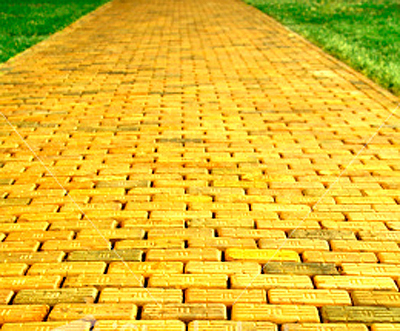Peter Cooper
 Is a decade of rising gold prices already over? Or are we on ‘The Road to $5,000 Gold’ as my new book published on Amazon.com this week maintains.
Is a decade of rising gold prices already over? Or are we on ‘The Road to $5,000 Gold’ as my new book published on Amazon.com this week maintains.
Last month George Soros was revealed as the latest convert to the gold camp with a substantial hoard of gold related assets. The news followed his remarks about gold being the ‘ultimate bubble’ at the World Economic Forum in Davos that were widely misunderstood as making him a seller.
Far from it, the wily old hedge fund manager who broke the Bank of England in the 1992 sterling crisis was apparently buying gold while others thought he was selling. For it is important to understand what he meant by gold being the ‘ultimate bubble’.
What Soros was saying is that gold will be the last in a series of investment bubbles. We have had US equity and housing bubbles, and must be close to a market top in US bonds. If past financial crises are any guide then the final stage is a shift into precious metals from a collapsing bond market.
Soros is not alone. John Paulson, the man who made $3 billion betting against subprime loans is also with him and has that much invested in gold now. These guys are not always right but betting against them is not often wise.
The important point about precious metals is that their supply is both relatively fixed and absolutely small. So if a great amount of money is suddenly funneled into this very tight asset class then the impact on the price is going to be phenomenal.
In the 1970s a series of financial crises – smaller but not dissimilar to recent events – ultimately ended in gold surging eight fold in price within a few years to $850 an ounce, and 25-fold within the space of a decade.
Note that 30 years later the gold price is not very much higher than it was then, and that silver is still way below its all-time high. Adjust for 30 years of inflation and you easily have gold at $5,000. That tends to suggest that a bout of serious global financial instability will actually send the price much higher.
For gold is not a metal but the most basic of currencies as far as investment is concerned. It has a fixed supply. You can print US dollars as the Federal Reserve is doing until you inflate your debts into oblivion. But alchemists have always failed to manufacture gold.
Moreover, as the 1970s experience suggests it does not necessarily need hyperinflation to send gold prices through the roof, just a bout of double-digit stagflation will do. Inflation comes from too much money pursuing too few goods. China has just caught it and knows how to export.
Gold as we know pays no dividends but rising gold prices are the perfect substitute. Gold is money you can trust in a climate of inflation or devaluation that amount to the same thing for investors in a currency.
Dr. Marc Faber recently suggested that $1,000 gold might be seen as similar for investors to the Dow crossing 1,000 in 1982. Bring on the 1.3 billion potential Chinese gold bugs.
China’s gold reserves amount to 1,054 tons, ranking fifth in the world. China is the largest gold producer in the world, with more than 300 tons of gold produced annually, all of it consumed locally. China consumes over 400 tons of gold a year, second only to India. And there are more than 3,000 tons of gold in private hands in China.
Indeed, it was only at the start of last year that China suddenly announced to the IMF that it had doubled its official gold reserves to 1,054 tons from 2003. Nobody knew anything about it before then.
China has clearly been increasing its official gold reserves steadily for a decade and has benefited from the quadrupling of gold prices over that period. But never mind the central bank, surely the surging private gold and silver holdings are the thing to watch.
When 1.3 billion Chinese become gold bugs then $5,000 an ounce gold will be seen as far too conservative and $200 silver will also be history. In the meantime, how will you be saving to beat inflation and low interest rates?
Disclosure: Long gold and silver

Peter Cooper is editor and publisher of the financial comment website arabianmoney.net based in Dubai. He boasts a long career in financial journalism in both London and the Middle East and this gives him an unusual perspective. He was formerly a partner in AMEInfo.com.
Nessun commento:
Posta un commento